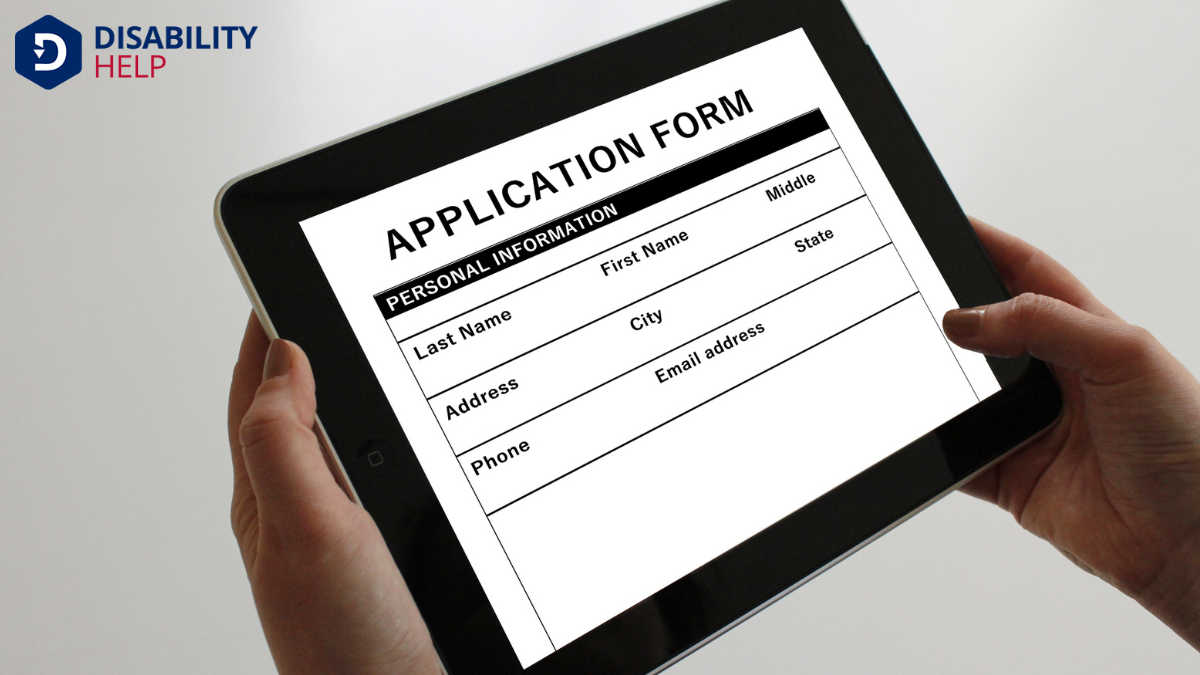You're probably wondering if there are scholarships for student veterans with disabilities. The good news is, there are numerous opportunities designed just for you. These scholarships aim to ease the financial strain of higher education while honoring your service. Federal, state, and private programs offer tailored financial aid. Curious about how to tap into these resources and what steps to take next? Let's explore the possibilities together.
Key Takeaways
- Scholarships specifically for disabled veterans alleviate educational financial burdens and acknowledge their service.
- Federal programs like the GI Bill and VR&E offer financial aid tailored for veterans with disabilities.
- Each state provides unique scholarship opportunities for veterans, with varying eligibility requirements.
- Private organizations and non-profits offer scholarships and grants specifically for disabled veterans.
- Institutional aid from colleges includes scholarships, grants, and work-study programs for student veterans.
Understanding the Importance of Scholarships for Disabled Veterans
While maneuvering the shift from military to civilian life, disabled veterans often face unique challenges that can make pursuing higher education intimidating. You might find the change to academic settings overwhelming due to physical limitations or psychological hurdles.
Scholarships specifically for disabled veterans play an essential role in easing this change. They not only alleviate financial burdens but also acknowledge your service and sacrifices, offering motivation to pursue your educational goals.
These scholarships can provide the necessary support to access resources like adaptive technologies or specialized counselingProfessional guidance to help individuals cope with emotional, mental, or social challenges, particu..., ensuring you have a fair chance to succeed.
Key Eligibility Criteria for Veteran Scholarships

To secure a scholarship as a disabled veteran, understanding the key eligibility criteria is essential.
Begin by confirming you meet the basic requirements, which often include veteran status and a documented disability. Scholarships cater to specific needs, so you’ll need to verify that your educational goals align with the program's objectives.
Here are some criteria to focus on:
- Veteran Status: Verify your honorable discharge and service duration.
- Disability Documentation: Confirm your disability is officially recognized by the VA.
- Academic Goals: Align your educational pursuits with the scholarship’s focus.
- Financial Need: Some scholarships require demonstrating a financial need.
Exploring Federal Scholarship Programs
Federal scholarship programs provide vital support for student veterans with disabilities, opening doors to educational opportunities that might otherwise seem out of reach.
You might consider the GI Bill, which covers tuition, fees, and even housing, easing the financial burden of college.
If you’ve sustained a service-connected disability, the Vocational RehabilitationServices that help individuals with disabilities prepare for, obtain, and maintain employment. and Employment program (VR&E) offers specialized training and education benefits tailored to your needs.
Don’t overlook the Federal Pell Grant, available to those with financial need, which doesn’t require repayment.
Explore the Yellow Ribbon Program if your chosen school’s tuition exceeds the GI Bill’s coverage.
State-Based Scholarship Opportunities for Veterans
Although traversing the landscape of state-based scholarship opportunities for veterans might seem intimidating, it's a worthwhile endeavor that can greatly ease the financial burden of education.
Each state offers unique programs tailored to assist veterans like you in pursuing higher education. These scholarships can substantially reduce tuition costs, making your academic journey smoother.
To effectively navigate this landscape, consider the following tips:
- Research State-Specific Programs: Every state has different offerings, so start by exploring what your state provides.
- Evaluate Eligibility Requirements: Confirm you meet the specific criteria for each scholarship.
- Apply Early: Scholarships often have deadlines, so submitting applications on time is essential.
- Seek Guidance: Reach out to state veteran affairs offices for assistance and support.
Pursuing these opportunities can open doors to a brighter academic future.
Private Scholarships From Non-Profit Organizations

When seeking additional financial aid, private scholarships from non-profit organizations can be a valuable resource for student veterans with disabilities. These scholarships often cater to unique needs and can provide you with extra support.
Start by researching non-profits focused on veterans or disabilities. Many of these organizations recognize the challenges you face and offer tailored opportunities.
To increase your chances, pay attention to eligibility criteria and application deadlines. Write clear, compelling essays that highlight your experiences and goals.
Leverage any available resources, such as school counselors or veteran support services, to guide your search. Remember, applying to multiple scholarships enhances your odds.
Scholarships Offered by Veterans Service Organizations
Veterans service organizations play an essential role in providing scholarships tailored specifically for student veterans, including those with disabilities. These organizations understand the unique challenges you face and offer financial support to help you succeed in your educational pursuits.
When seeking scholarships, look into well-known organizations dedicated to veterans' welfare. They often provide valuable resources and assistance.
Here are some key benefits you might find:
- Targeted Support: Scholarships are designed with veterans' needs in mind.
- Networking Opportunities: Connect with other veterans and professionals.
- Comprehensive Guidance: Access to advisors familiar with veterans' issues.
- Variety of Scholarships: Options available for different fields and levels of study.
These scholarships can be a crucial stepping stone in achieving your academic and career goals.
Online Resources for Finding Scholarships
Finding the right scholarships can be challenging, but leveraging online resources makes the process much more manageable. Start by exploring websites specifically designed for veterans and students with disabilities.
Sites like Scholarships.com and Fastweb offer extensive databases where you can filter scholarships based on your unique needs and qualifications. Also, check out the Department of Veterans Affairs' website for veteran-specific opportunities.
Don’t forget social media platforms; many organizations post scholarship announcements and deadlines there. Joining online forums or groups for student veterans can also provide valuable insights and recommendations.
Utilizing these tools allows you to identify scholarships that align with your personal circumstances, ensuring you maximize your financial aid opportunities. Stay proactive and regularly update your search to find the latest options.
Crafting a Strong Scholarship Application

After identifying potential scholarships, the next step is crafting a strong application that stands out. Your application is your chance to shine and show why you're the best candidate. Pay attention to every detail and guarantee everything aligns with the scholarship's criteria.
Here are some key elements to focus on:
- Read the Instructions Thoroughly: Make certain you understand all the requirements before starting.
- Highlight Your Unique Experiences: As a student veteran with disabilities, your experiences are valuable and unique.
- Tailor Each Application: Customize each application to fit the specific scholarship and its values.
- Proofread Carefully: Errors can detract from your application, so make certain your writing is clear and professional.
Tips for Writing a Compelling Personal Statement
Crafting a compelling personal statement can be the key to setting your scholarship application apart, especially when you thoughtfully share your journey.
Start by reflecting on your experiences as a student veteran with disabilities, highlighting challenges you've faced and overcome. Be genuine; authenticity resonates.
Use clear, concise language to describe how these experiences have shaped your goals and aspirations. Don’t be afraid to show vulnerabilityThe increased risk of harm or exploitation faced by individuals with disabilities, often due to soci..., as this can demonstrate resilienceThe ability of individuals with disabilities to cope with and adapt to challenges and adversity. and growth.
Structure your statement with a strong opening that grabs attention, followed by a logical flow of your story, and a conclusion that reinforces your commitment.
Tailor your statement to the scholarship criteria, ensuring it addresses what the committee values most.
Proofread carefully to avoid errors and maintain professionalism.
Leveraging Additional Financial Aid Resources
Although securing a scholarship is a significant accomplishment, it’s essential to explore additional financial aid resources to fully support your educational journey.
By leveraging other financial options, you can alleviate stress and focus on your studies. Start by investigating resources specifically designed for veterans with disabilities.
- Federal Grants: Apply for Pell Grants or other federal aid programs through the Free Application for Federal Student Aid (FAFSA).
- State Benefits: Check if your state offers unique educational benefits or grants for veterans.
- Institutional Aid: Many colleges provide financial assistance tailored for student veterans, so contact your school's financial aid office.
- Private Organizations: Explore non-profit organizations and foundations that offer grants or emergency funds for veterans.
Conclusion
As a student veteran with disabilities, you're not alone on your educational journey. By exploring federal, state, and private scholarships, you can find the financial support you need. Remember to meet eligibility criteria, apply early, and utilize online resources to discover opportunities. Craft a strong application and personal statement to stand out. Don’t forget to explore additional financial aid resources to maximize your funding. Your dedication and service are valued, and these scholarships can help you succeed academically.






